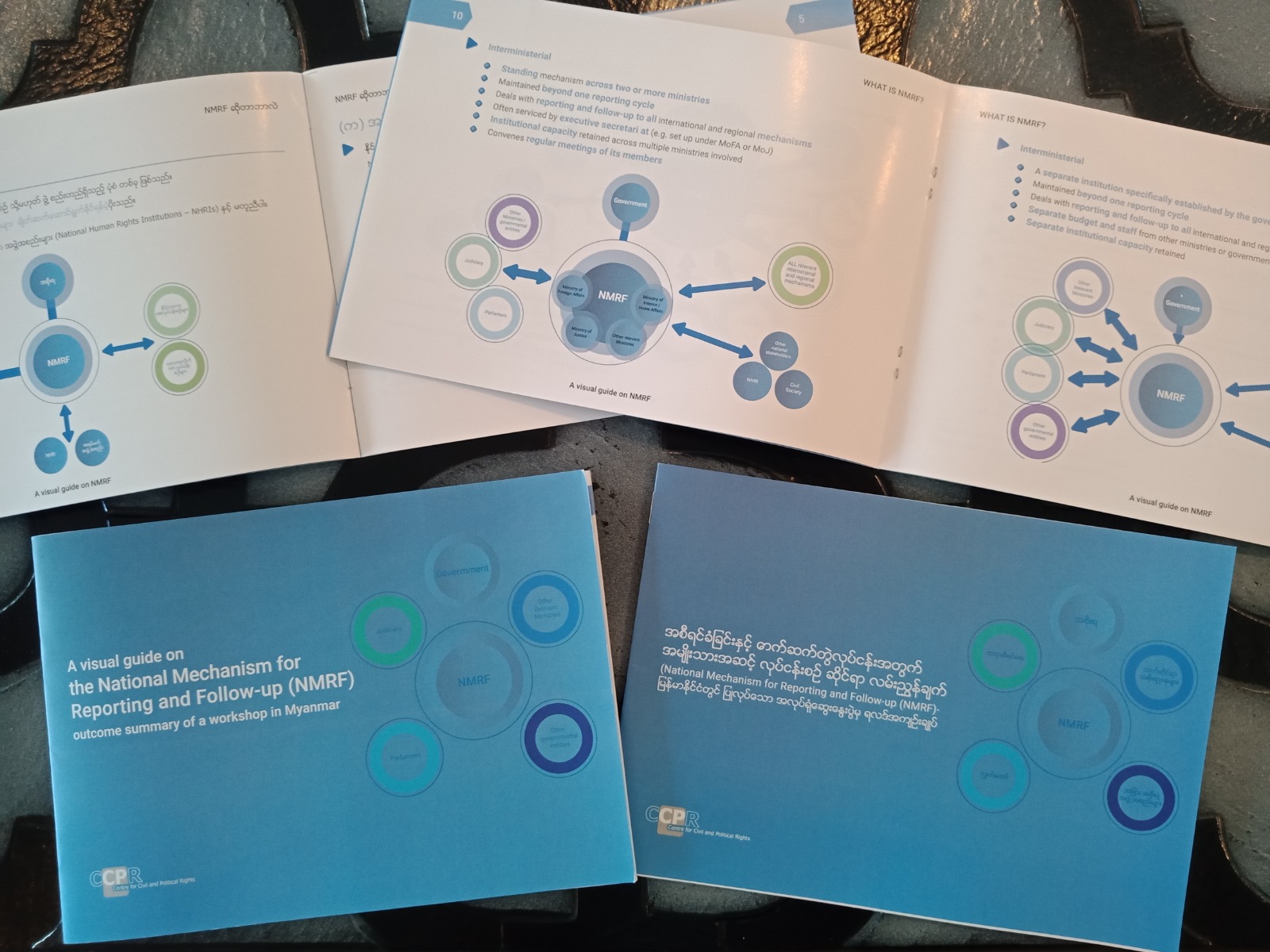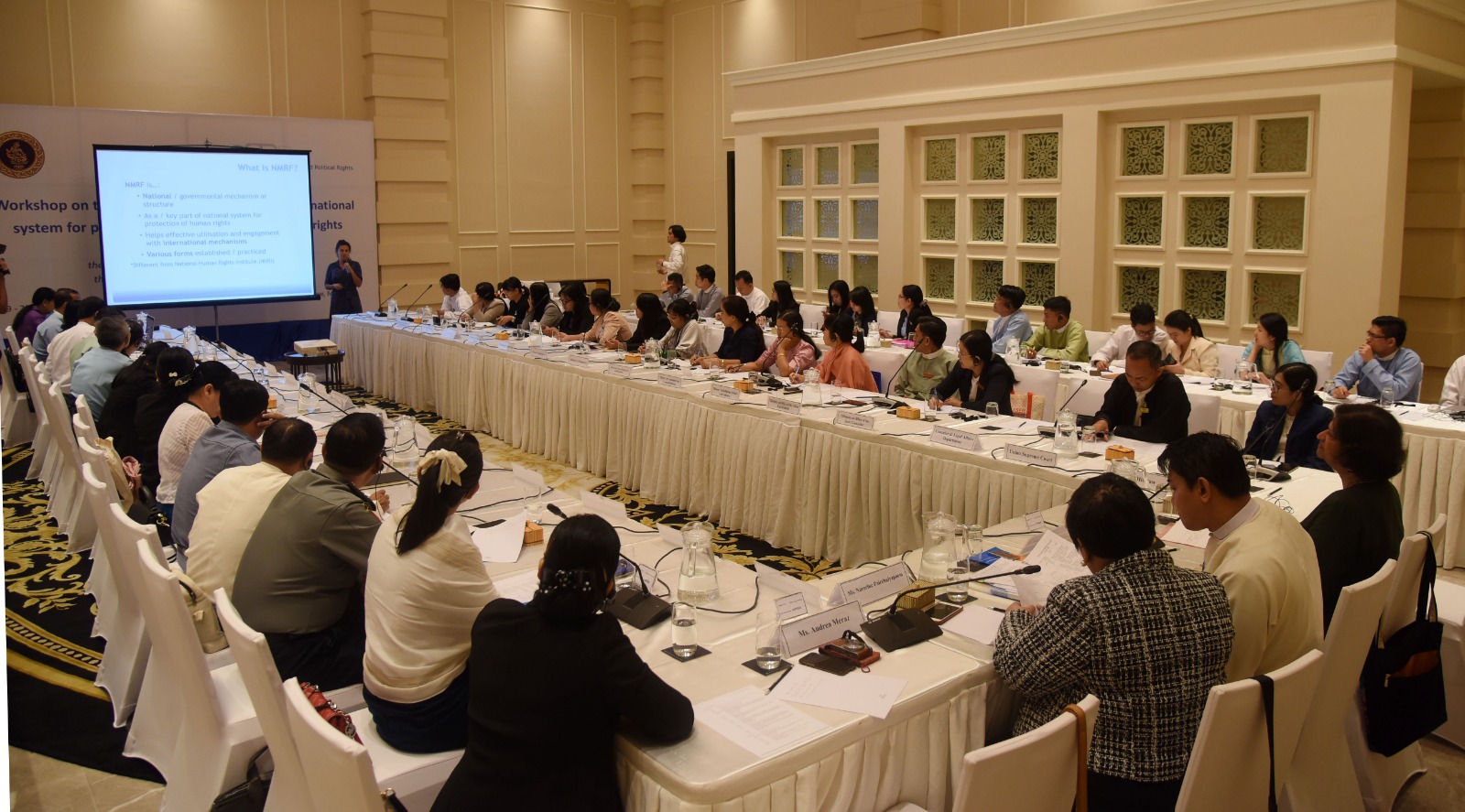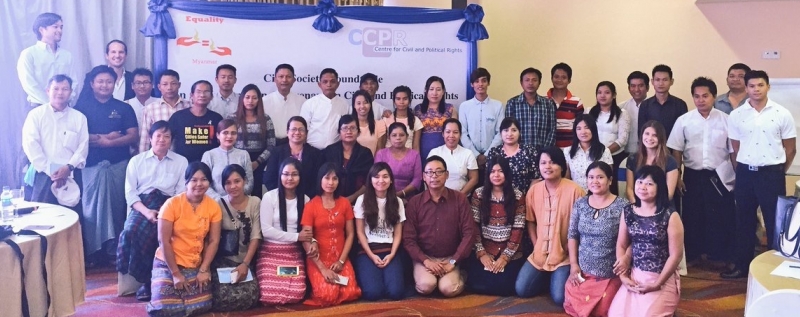Myanmar at HRC 53: Situation deteriorating but several UN Member States remain silent and inactive
Published on 07 Aug 2023, 01:41 PM
The High Commissioner and the Special Rapporteur raise the alarm over the lack of action of Member States to address the deteriorating situation in Myanmar.
.jpg)
The 53rd Human Rights Council (HRC) session took place in Geneva, Switzerland, from 19 June to 14 July 2023. During the session, two Interactive Dialogues (ID) were held on 6 July 2023 regarding Myanmar: one with the UN High Commissioner for Human Rights (HC) on his report (A/HRC/53/52) and one with the Special Rapporteur on Myanmar (SR Myanmar).
In his opening statement of the ID, High Commissioner Volker Turk, highlighted the deteriorating situation in Myanmar, which “continues its deadly freefall into even deeper violence and heartbreak”, including “four cuts” strategy used by the military, its airstrikes and artillery attacks including those against civilian targets, burning of villages, systematic denial and obstruction of humanitarian aid and other violations of international human rights and humanitarian law. The HC further called for immediate end of violence, release of political prisoners, creation of conditions necessary for voluntary, safe, dignified and sustainable return of Rohingyas and especially for accountability, thereby stressing “the path out of this crisis must be anchored in accountability” and urging the UN Security Council to refer the situation to the International Criminal Court.
The SR on Myanmar, Thomas Andrews, also highlighted the deteriorating situation in the country, in particular the situation of children, including their killings, detention, displacement, need for humanitarian assistance and access to education as well as the situation of Rohingyas including Rohingya children, brutal attacks against them by the Myanmar military, “unconscionable” conditions in the refugee camps but also the lack of conducive conditions in the Rakhine State for voluntary, safe, dignified and sustainable return, especially concerning the pilot programme initiated by the junta and Bangladesh.
Pointing out that adoption of resolutions is “frankly insufficient”, the SR urged UN Member States to develop a more coordinated strategy and action plan, take proactive and targeted actions, undermine the junta’s capacity “by denying it weapons, money, and legitimacy”, and commit necessary funds.
Panel discussion on human rights violations against Rohingya Muslims and other minorities in Myanmar
On 21 June 2023, the HRC held a panel discussion on the measures necessary to find durable solutions to the Rohingya crisis and to end all forms of human rights violations and abuses against Rohingya Muslims and other minorities in Myanmar. In her opening remarks, UN Deputy High Commissioner for Human Rights, Nada Al-Nashif stressed the particular suffering inflicted on minority communities, including Rohingya Muslims, by the military coup and the Cyclone Mocha and stated that the conditions necessary for the voluntary, safe, dignified, and sustainable return of Rohingya refugees and internally displaced persons do not exist yet on the ground. She called on the international community to provide robust and sustained support to Rohingya refugees and urged the Council to give full attention to the views of the panel and work collectively on durable solutions.
The panelists emphasized, among others, the need for: full recognition of Rohingya ethnic status beyond citizenship; establishment of a truth commission for structural and institutional reform prior to any repatriation effort; addressing root causes and creation of conditions for voluntary, safe, dignified and sustainable return before any repatriation attempts; improvement of conditions in host countries; alternative durable solutions; reference of the situation in Myanmar to the International Criminal Court; and the establishment of a separate criminal tribunal to investigate and prosecute all the atrocity crimes in Myanmar.
Resolution of the HRC on Myanmar
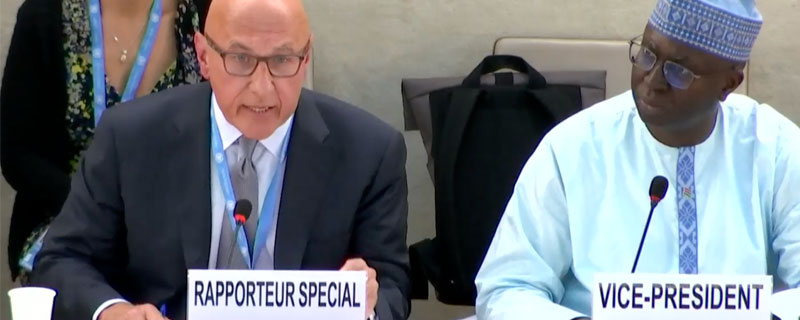 The Special Rapporteur on Myanmar updates the Council during HRC53.
The Special Rapporteur on Myanmar updates the Council during HRC53.
On 11 July 2023, the HRC adopted a resolution without a vote on the “Situation of human rights of Rohingya Muslims and other minorities in Myanmar” (A/HRC/RES/53/26), which was tabled by the OIC. The resolution expressed concerns and condemnation over human rights violations and abuses, in particular against Rohingya Muslims and other minorities as well as those since February 2021 and called for, among others, immediate end of violence, addressing the root causes of the crisis, and accountability. However, the resolution crucially failed to address Myanmar military as the primary perpetrator and thus its accountability, even to use the term “coup”, whereby it continuously calling on “Myanmar” to take actions. It also made contradictory calls on “Myanmar … to take concrete steps towards the creation of an environment conducive to the voluntary, safe, dignified and sustainable return of forcibly displaced Rohingya Muslims and other minorities, in line with the bilateral instruments on repatriation signed by Bangladesh and Myanmar”, while urging “Myanmar to immediately commence the … repatriation and subsequent reintegration of all forcibly displaced Rohingya Muslims and other minorities from Bangladesh”.
What countries said about Myanmar at the HRC 53
As it was the topic of the panel discussion, a number of countries were addressing issues related to the rights and situation of Rohingyas, such as systematic discrimination and grave violations of their human rights including crimes against humanity and war crimes. Among those, repatriation was a topic, on which positions of countries were rather divided. A number of countries stressed on the need and importance of ensuring safe, voluntary, dignified and sustainable return and that the situation in Myanmar i.e. Rakhine State was not yet conducive to it, while a couple of countries appeared to call for immediate return, whereby Bangladesh was focusing on the pilot project carried out between Bangladesh and “Myanmar” i.e. the junta, which was also welcomed by Russia.
Belarus, China, Russia and Venezuela continued expressing their disapproval or opposition against international actions including by UN HC and SR by claiming e.g. “politicisation” of issues and mandates, “bias” or “lack of verified information”, and at one point attempting to legitimise acts of the Myanmar military by typically claiming that the issue is “internal affairs” and “sovereignty” of “Myanmar”.
While a number of countries clearly addressed Myanmar military as the target of their calls and specified their accountability, some countries were using vague or problematic terms such as “Myanmar”, “Myanmar authorities” or “authorities in Myanmar”, “Myanmar government”, “military authority”, when referring to national actors in Myanmar, especially Myanmar military.
Findings of the Centre’s analysis of countries’ statements at the HRC 53 can be found here. Updated list of silent countries can be found here.
CCPR Centre’s statements at the HRC 53
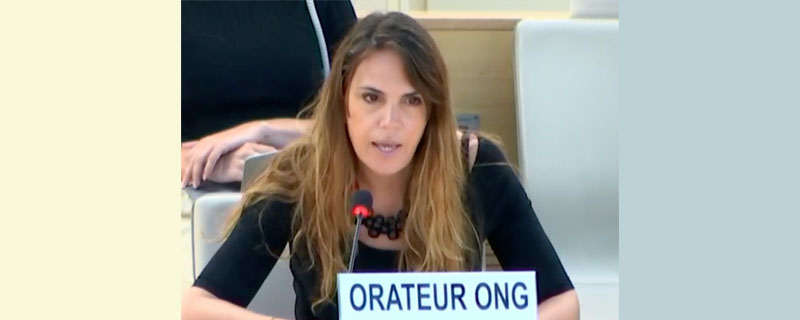 CCPR Centre's staff Paola Barioli reads a statement during the ID with the HC on Myanmar.
CCPR Centre's staff Paola Barioli reads a statement during the ID with the HC on Myanmar.
The Centre submitted a written statement to the HRC 53 highlighting the deteriorating situation in Myanmar including the instrumentalisation and collapse of the domestic justice system and called for urgent actions from all UN Member States, in particular HRC Members that remained silent or quiet on Myanmar so far. It also stressed on the need for specification of actors in reports and statements, especially when referring to the Myanmar military to ensure their accountability.
The Centre also delivered two oral statements during the HRC 53, one during the ID with the High Commissioner and one during the ID with the SR on Myanmar.
.jpg)





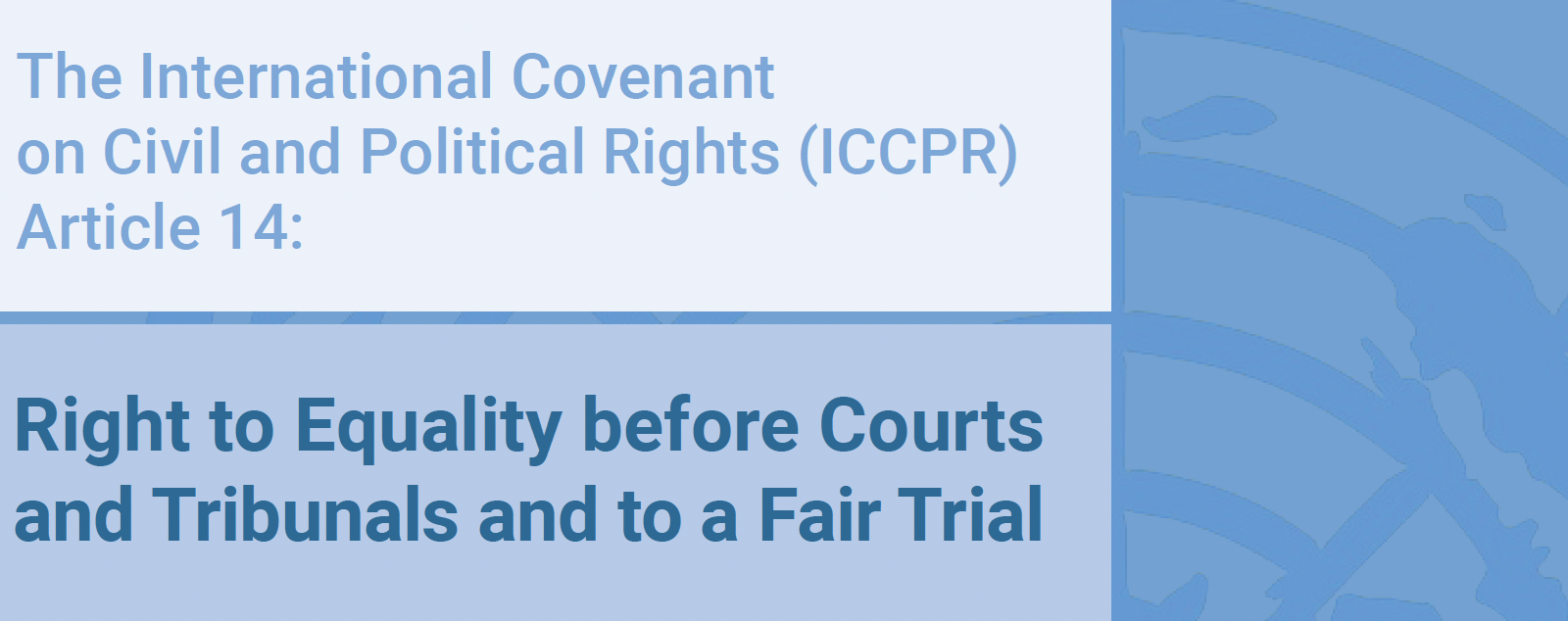
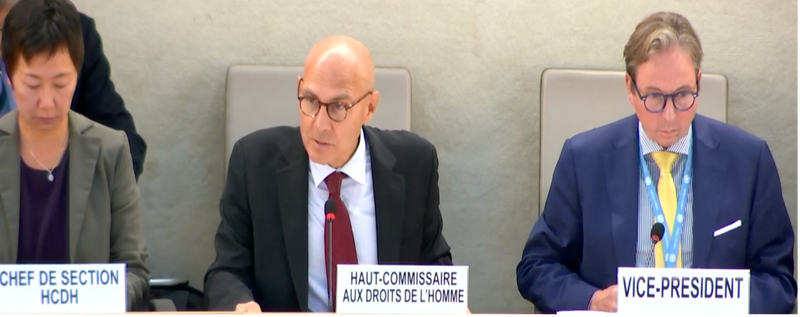
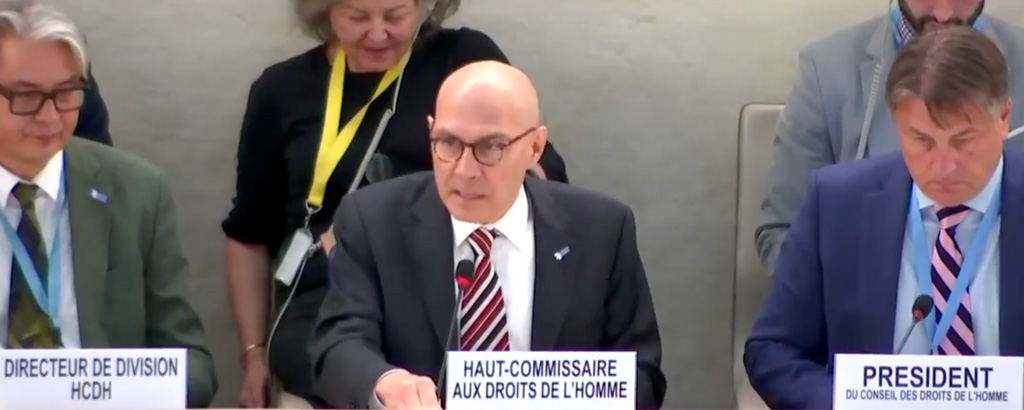
.jpg)
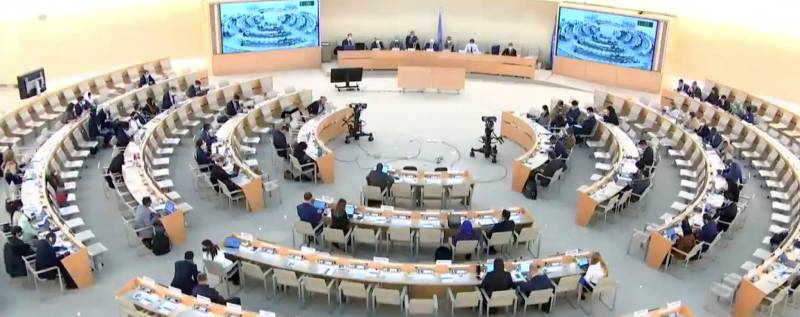
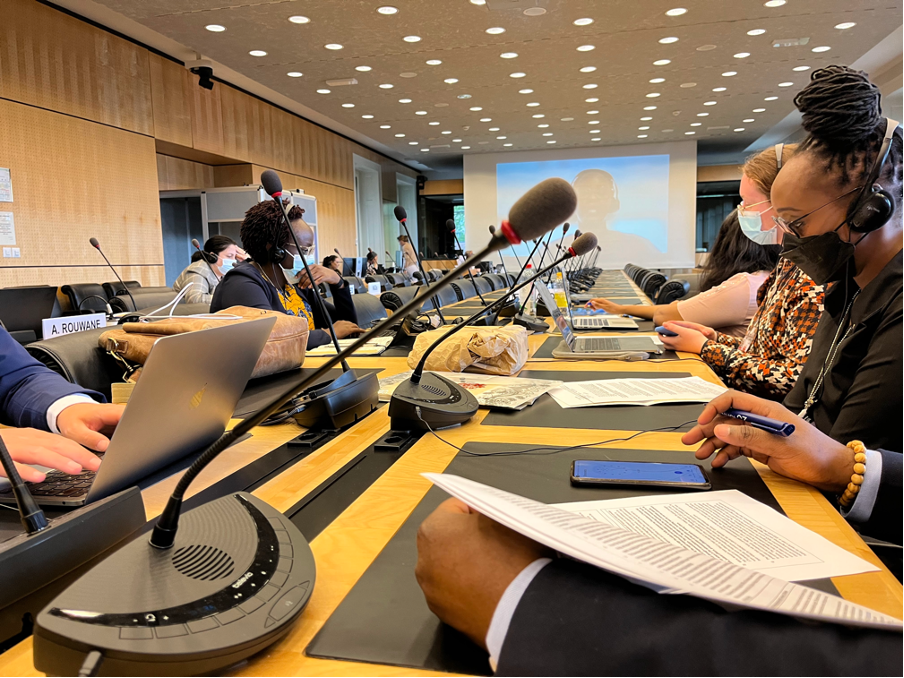
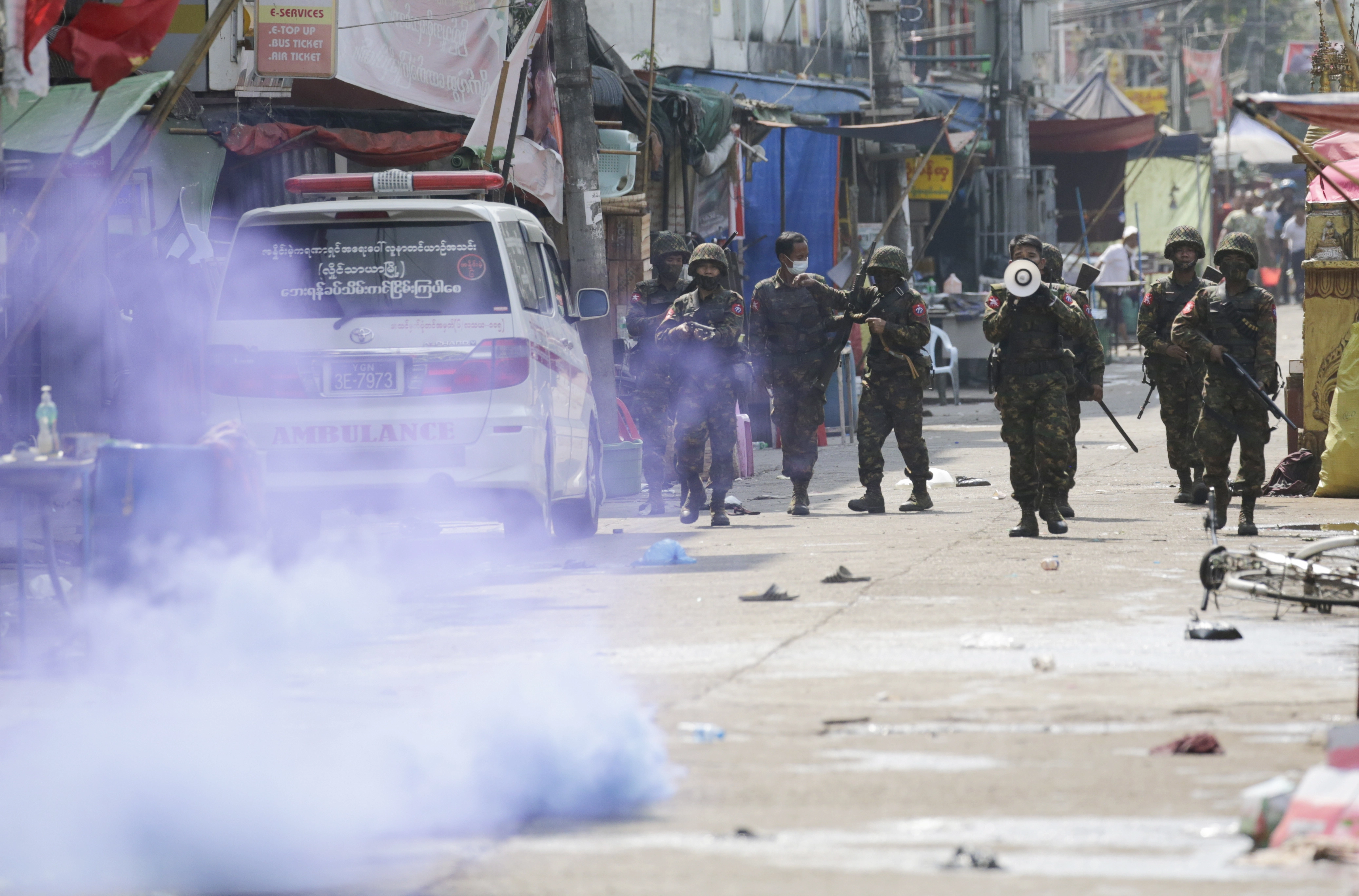
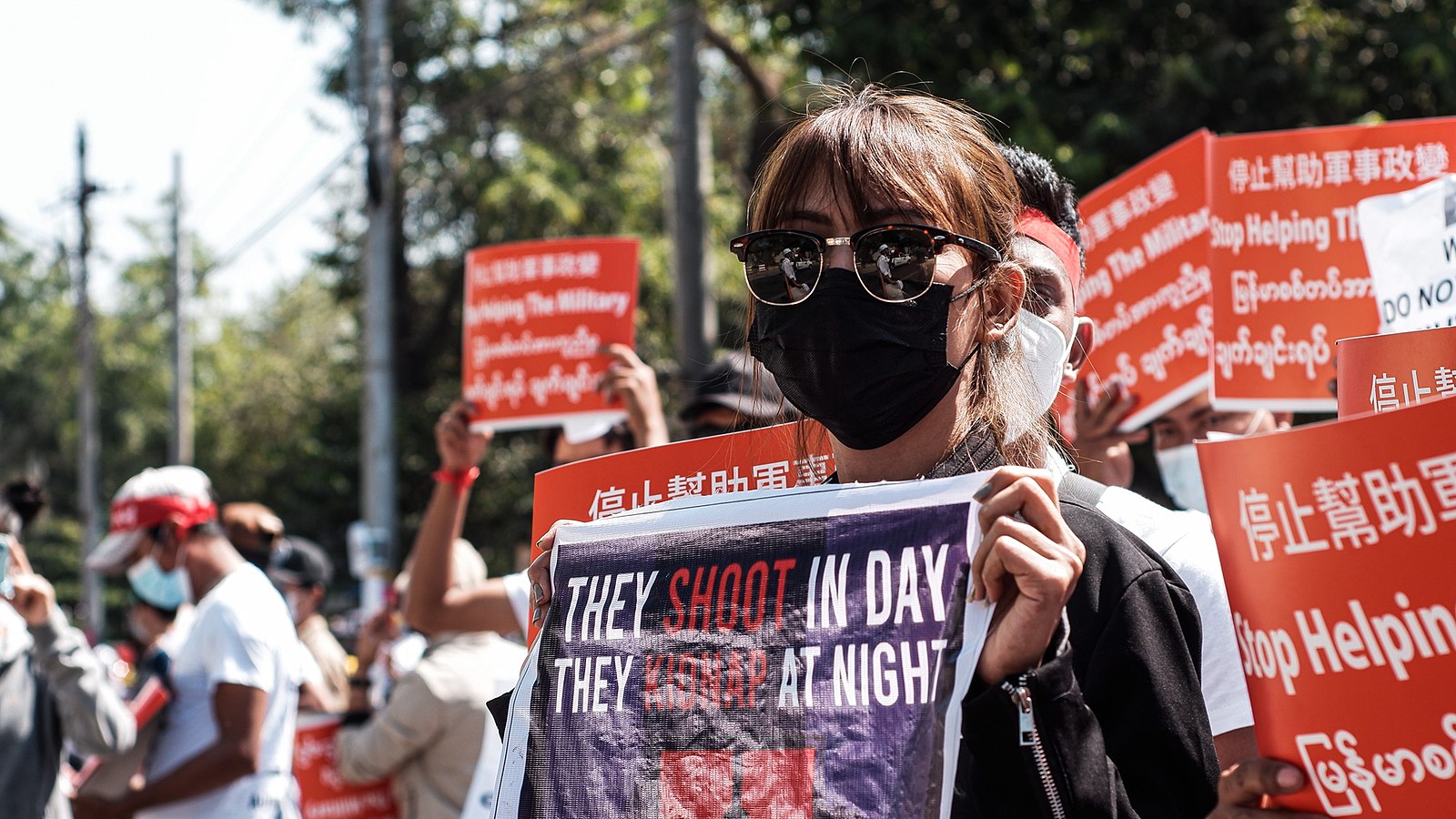
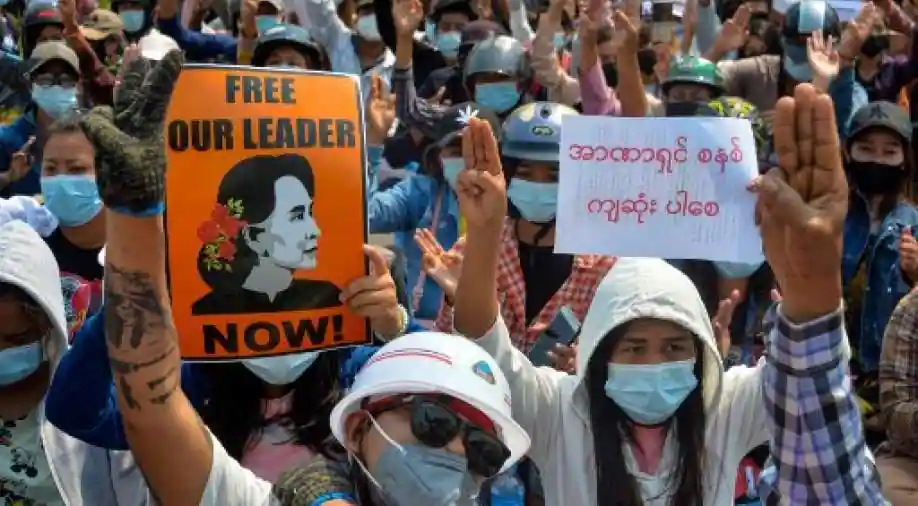
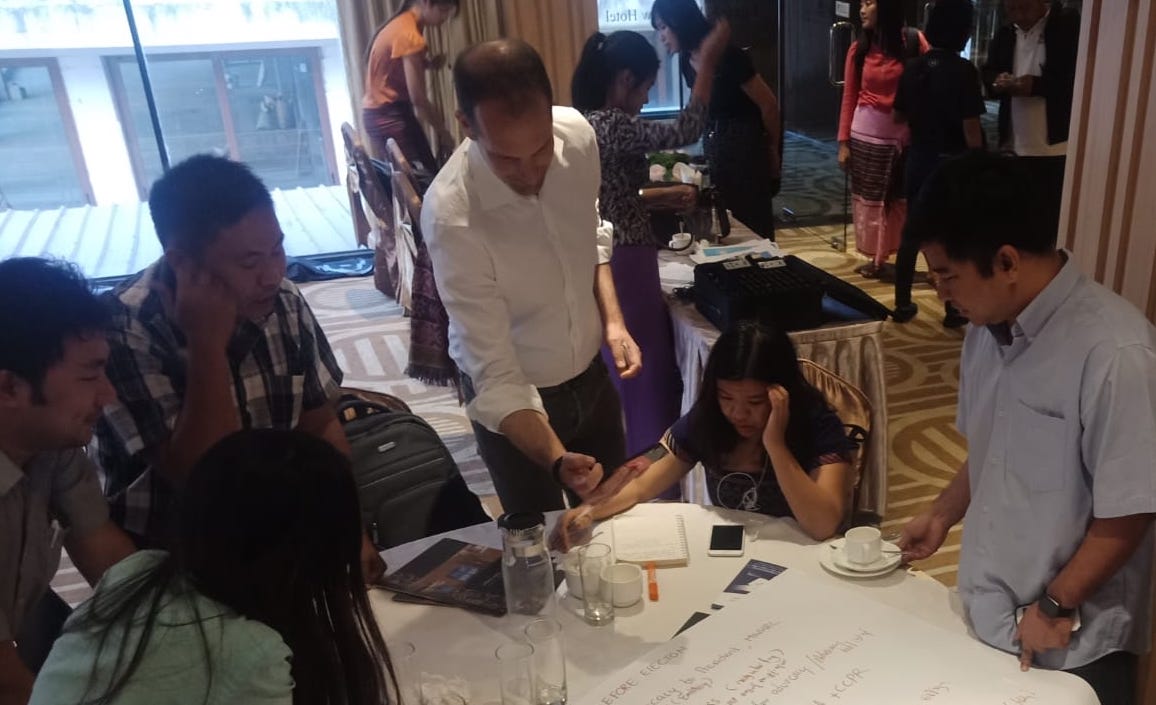
 copy.jpeg)
